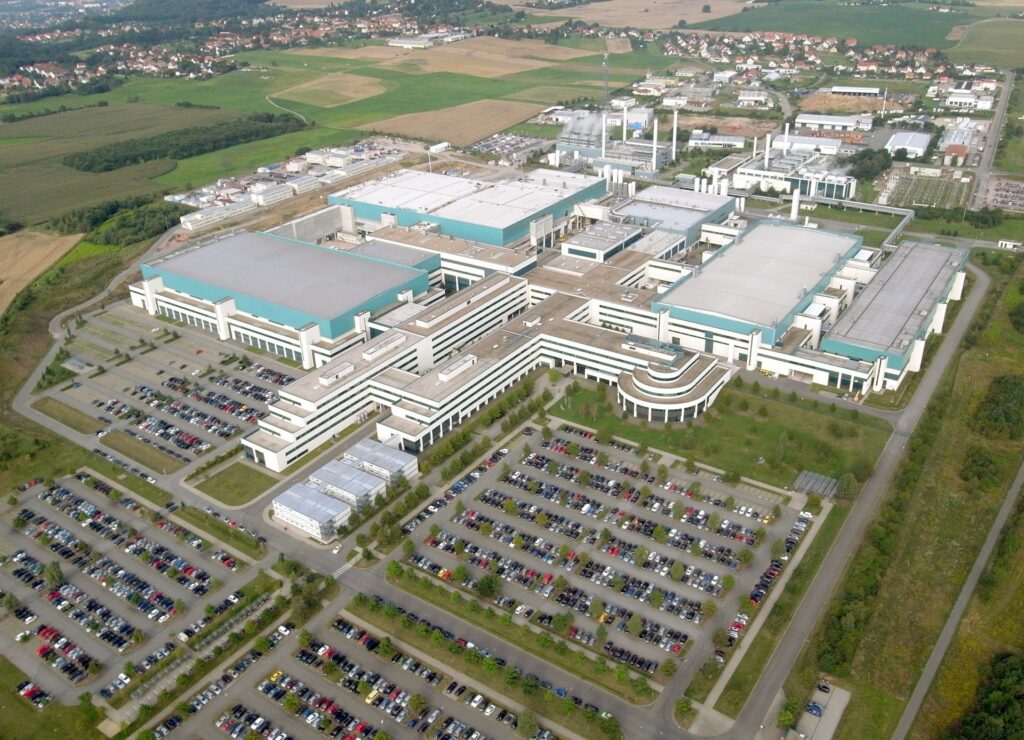The global microprocessor shortage that is hampering industries around the world has seen EU lawmakers scramble to write new legislation that will alleviate the crisis and help ailing economies.
The semiconductor shortage poses a severe and far-reaching threat to the EU economy, with the chips used in all industries and in products ranging from computers to medical devices, 5G, and AI systems as well as security and defence.
With geopolitical tensions mounting, EU lawmakers are jostling to finalise the Chips Act, a piece of legislation to boost the European semiconductor industry with €43 billion in subsidies, making it less dependent on an unreliable and complex supply chain.
"If we are dependent on others for semiconductors, we will lose our economic independence as a whole. We cannot allow that to happen," one of the file's negotiators MEP Tiemo Wölken told The Brussels Times, stressing the need to boost Europe's semiconductor capacities, as the industry is mostly based in East Asia and caught in a conflict between the US and China.
But manufacturing semiconductors is a complex business and a large semiconductor company may rely on up to 16,000 suppliers worldwide. Disruptions can occur due to natural accidents or geopolitical tensions. So can the Chips Act actually help the EU?
A global race
Compared to other trading partners, the EU lags far behind in chip manufacturing capacity, with the bloc currently able to manufacture just 10% of global capacity, according to a European Parliament briefing. Yet the EU has done little to nourish the sector, even while other world players have invested heavily in their industries.
In the US, President Joe Biden implemented the Chips and Science Act, with $39 billion to boost manufacturing as well as US$13.2 billion for research and development.
China aims to bolster its industry by investing up to US$200 billion by 2050, while South Korea unveiled plans to spend around US$450 billion by 2030.
Yet some legislators fear a trade war with producing regions trying to outdo each other in subsidies; in November, EU Competition Commissioner Margrethe Vestager warned against a subsidy race between the US and the EU.
"We really need to avoid a subsidy race; it will leave everyone poorer," Vestager said during a speech at the University of Leuven, warning taxpayers would have to pay the bill.

European Commissioner Margrethe Vestager. © Belga
"In the present circumstances, it may be a temptation too hard to resist for companies to try to play governments against one another, scanning the landscape to see who will pay more. The risk is letting taxpayers, whether European or American, pick up the bill and getting very little from that investment."
Funds for the Chips Act would partly be drawn from the Horizon Europe programme (the EU's key fund for research and development) and its Digital Europe programme for funding digital technology.
Some policymakers are unhappy with this prospect, with the European Committee of the Regions (CoR) already criticising the Commission plan to redirect funds from these programmes.
Silicon Valleys of Europe
Even within the EU, there are tensions around which Member States would receive funds, as the EU microprocessor production is concentrated in Germany, France, Italy, the Netherlands, Austria, Belgium and Ireland.
Dutch MEP Bart Groothuis describes a situation in which "We are working towards Silicon Valleys of concentrated areas with the knowledge and infrastructure to make chips."
"We need to make sure we enhance where we are good [so that] all benefit indirectly."
Crisis management
In the event of an acute chip shortage, the Commission wants a crisis strategy which would centralise power around the Commission, requiring Member States to alert the Commission if they suspect a semiconductor crisis. The Commission in turn would then be empowered to buy chips on behalf of Member States.
But the proposed crisis strategy doesn't fit the reality of the supply chain difficulties, argues geopolitics and technology analyst Jan-Peter Kleinhans from German tech think tank Stiftung Neue Verantwortung. The complexity of the supply chain and the time it takes to produce chips mean that once a crisis hits, there is little the Commission can do.
Prevention ought to be the central policy, Kleinhans stresses, so that different customer industries stockpile chips to prevent a dearth of crucial components. This would involve "asking manufacturers (of customer industries) to have strategic oversight of stocks in order to be better prepared for future shortages."
Related News
- Moscow’s microchip shortage could help shape war on Ukraine
- EU launches plan to make continent leader in microchip market
Despite the EU's limited ability to control a complex supply chain, one policymaker stressed the importance of not succumbing to protectionism.
"From my perspective, (strategic autonomy) does not mean that Europe should close itself off from the world," said one of the file's negotiators MEP Eva Maydell. "On the contrary, we should look at ways to work more closely with like-minded allies such as the USA and Taiwan to ensure we are able to maintain a strong supply of chips and strong investment in research, development and innovation."
"Put simply, if Europe pulls up the drawbridge, we will only harm our own industries."

